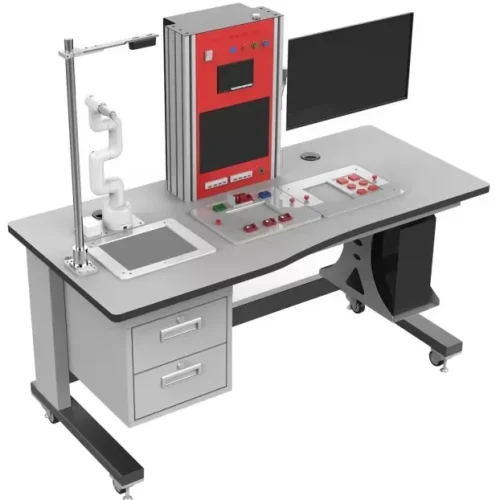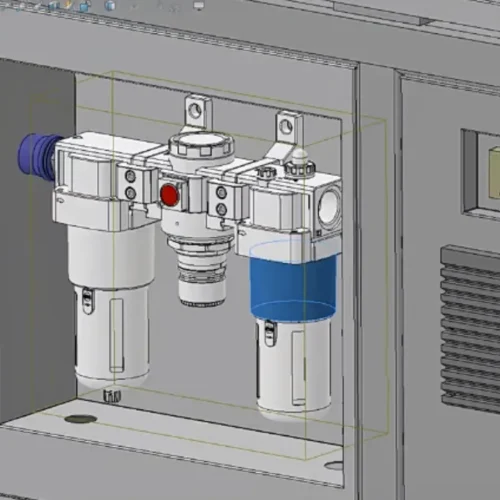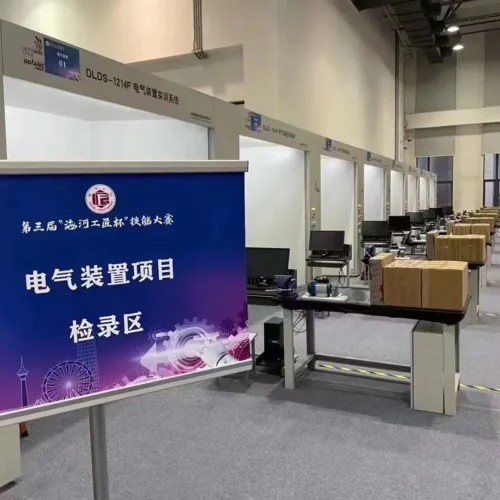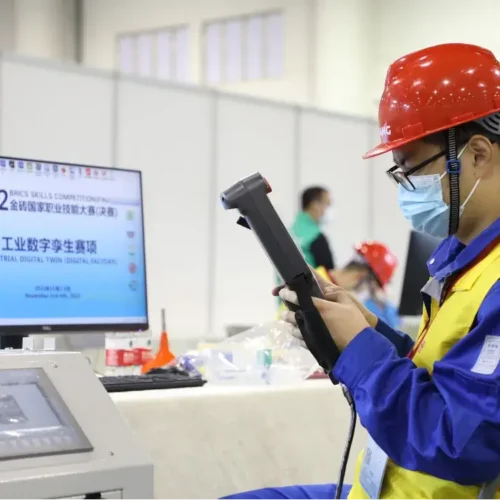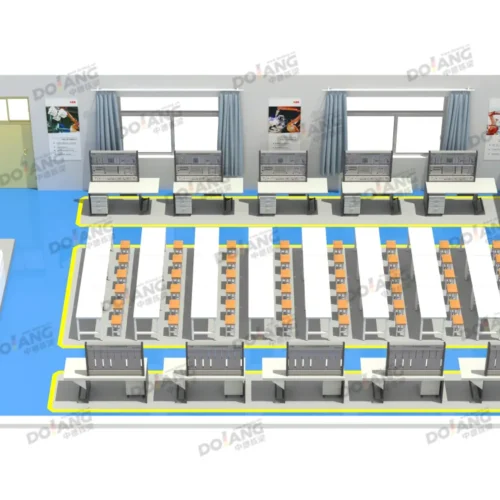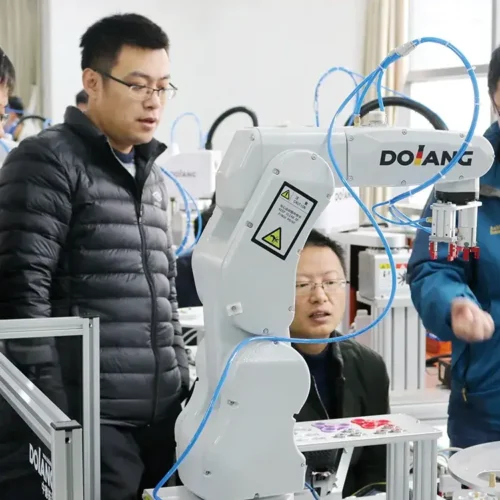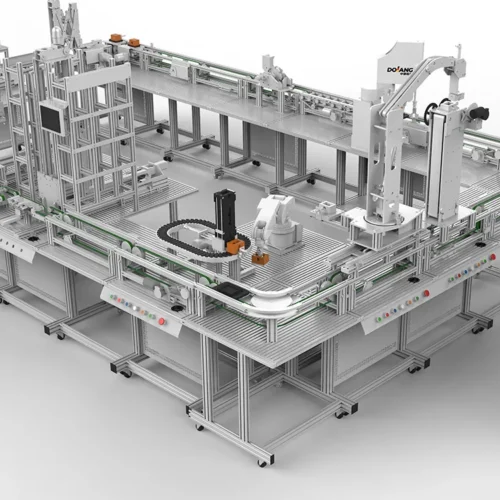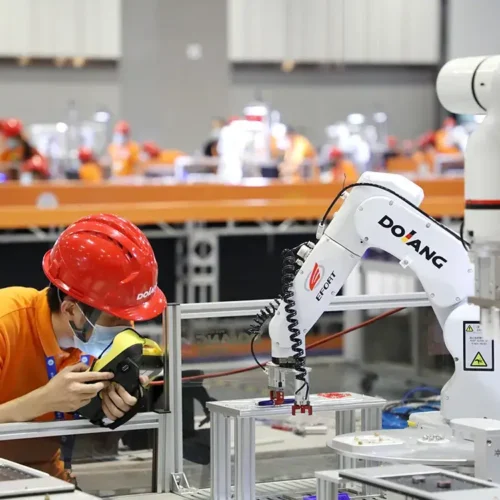If you want your organization to progress, equipping your employees with the proper technical training should be taken seriously by organizing different technical training programs.
Introduction
The world is now a technological globe with various tech innovations emerging to ease the workload in offices and homes. New software and hardware are being developed to fit into different industries for prompt work delivery. Leveraging the technologies has enormous value for the organization, such as making it stand out and relevant. Any efficient industry or company that wants to earn their customers’ credibility must make it a routine to upskill and reskill their employees in line with the present innovation. When a company has a quality training program for its workforce, it will invariably significantly impact its reputation, bringing in success in the form of profits and relevancy.
Technical training for employees will help the organization to build core technical knowledge that is needed while mastering the technical aspects of the job to be in tune with relevant innovations and perform their role effectively. The more employees undergo technical training, the better they handle technical responsibilities.
In this article, all that is required to be known by employees and employers on technical training and its inherent values will be appropriately put into context.
Understanding the concept of Technical Training
Technical training deals with the skills needed for designing, developing, implementing, maintaining, supporting, or operating the organization’s technology or applications that have been introduced for effectiveness. With this training, the employees will be adequately equipped with virtually all the tasks and functions relating to the technology used in the organization. Employees will be able to master the technical responsibilities of their role in the organization. The technical skill that training can be obtained on can be engineering skills, programming skills, equipment operation skills, writing skills, interpreting website analytics, and many more. When it comes to the subject of technical training, it is more practical than theoretical or soft skills.
Technical training should be part of the modus operandi of any organization that wants to remain relevant and stay strong amidst competition. With this, new ways of doing things will be made known as against the old ways, resulting in increased efficiency and productivity in employees and in the way they deliver on their tasks. Technical skill training differs from other types of training in the organization as it is more job-specific than generic and transferrable.
Benefits of technical training to an organization
When you provide your workforce with relevant training, you are invariably elevating the skill set of your team members. And this will also positively impact your organization’s performance and service delivery. Here are some unique additions that technical trainings give your organization for effective workflow.
-
Minimizing Skills Gaps
For an organization to be successful, it depends so much on how it can minimize skills gaps in its teams internally and externally. When an organization minimizes skills gaps, there will be a change in the landscape of the workforce demand, resulting in efficiency. In most organizations, scaling skills gaps between old and new seems complicated as it can slow down collaborative work. But with technical training, personalized and updated skills specific to the employee’s role will be delivered, and this will make them to be up and doing in their role competency without affecting workflow. Aside from equipping new employees with technical training, to remain relevant, the old team members also need to acquire skills to thrive in the present technological world, thereby bridging skills gaps within the team members in the organization.
-
It enhances self-sufficiency
With targeted technical training, team members are equipped with the ability to execute tasks on their own. With this, the level of dependencies within and outside of the organization will become reduced and making the team members creative and initiative in their work. When employees have the right skills, they will be self-sufficient in their functions, such as business intelligence, marketing, finance, engineering, data science, and many more.
-
Efficiency and automation will be enabled
When advanced technical training is given to the organization’s workforce, critical business challenges will be solved, and time and effort will be judiciously used. As a result of technical skills training, an employee will know how to automate repetitive tasks instead of the usual crude way that slows down productivity. Cross-departmental initiatives will also be expedited. An agile approach to working will be utilized, and managing and making the most of their data through the acquired skills will be put to work.
Creating Effective Technical Training in your Organization.
To create effective technical training that will meet up with the structure of your organization and be result-driven, here are things to do.
-
Know the technical training needed:
to develop technical training that meets your company’s demands, assesswhat the company needs the most and which department needs it. In doing this, questionnaires can be given to employees, or an interview on the skill set and its relevancy can be conducted for you to know where to come in. Employee performance can also be observed in how they get work done and how fast they deliver. Another means is by keeping an eye on competitors to know what they are doing differently that you are not.
-
Determine and define the goal of the training:
after doing the analysis and assessment, the next thing is to determine what the goal of the company will be at the end of the training. These goals must follow the nature of the company, the future projection, and the employee’s dutieswith their job description.
-
Have clear job expectations:
the expectation for each role in the organization should be well spelledout to have technical training for your workforce. Doing this will make the program easier by highlighting the specific training for each department and individual and the skill needed to make their role more effectively.
-
Work with other departments:
in developing goal-oriented technical training, you need to collaborate with other departmentsin your organization to get ideas on what to do and how to do Working with the head of each department and the human resources section will make the planning effective.
-
Make a plan for the training:
once you have done all the necessary things to make the training goal-oriented, draft a technical training plan for each department and individual that needs the training. Have a specific time you want the training to occur that will not affect the working time. Let the department heads be carried along by making plans known to them and ensure it aligns with the employee goals as well.
-
Source for those who will handle the training:
when you have done all, source for a competent instructor(s) toconduct the training for your workforce. The instructor can be within the organization if there is a versatile person in that area of the training, and technical training services can also be employed in the areas where the training is needed.
How employees can benefit from technic training
The world is no more static; old ways of doing things are being abolished, and more sophisticated technical ways are being embraced. And as a worker, it is necessary to follow the trend to stay relevant. Going for hands-on technical training development will significantly benefit you in many ways.
- Your skill set will be well enriched, and you will be able to meet your work demands in the competitive market.
- It helps you to get better job opportunities as most companies and organization focuses more on thosewho are technically savvy than those who are not.
- Going for relevant technical training in line withyour job description, whether it is HVAC technical training, vocational-technical training, or any other, will put you ahead of others in the same departments, earning you promotions.
- Acquiring technical skills will help you break lots of hurdles in performing your duties and saves youconsiderable time on your tasks. With the skill set you have acquired, you won’t need to seek the assistance of an external force, and it will save you money.
- Upskilling and reskilling yourself with relevant technologies and tools will make youstay above the competition and be relevant with the latest tech knowledge. The skills can also serve as an alternative income for you aside from your regular work.
Conclusion
Both for an organization and individual, technical training is essential as it helps to be relevant in the competitive market. As an employer, having well-trained staff will help reduce your organization’s risk. With your employees having relevant knowledge, there will be more efficiency, and you will be at an advantage amid competition.
A well-organized training should be dished out promptly as technology keeps advancing to leverage different innovations, reduce the cost of operation and maximize profit. There are different types of technical training programs that the organization can rely on for their employers, such as group training, on-the-job training, classroom-style training, and peer-led training. Each of these should be well evaluated on its effectiveness to the result of the organization.


